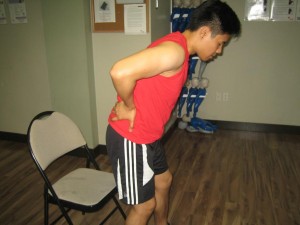Snapping hip syndrome is defined by a snapping sensation and often perceivable popping sound when the hip is flexed and straightened. There are various causes for the condition, but typically due to the tendons that catch on a bony protrusion and snaps when the hip is moved.
Many individuals with the condition feel as if the ball of the hip joint is moved out of position. This is rarely linked with the condition and typically caused by serious traumatic injuries.
What are the causes?
- Iliotibial band syndrome – the usual cause is once the iliotibial band shatters over the greater trochanter. In case this is the cause, the individual might develop hip bursitis due to the irritation of the bursa in the area.
- Snapping of the iliopsoas – the tendon might catch on the bony protrusion of the pelvis and trigger a snap once the hip is flexed.

Oftentimes, an oral anti-inflammatory drug or a cortisone shot is given to control the inflammation if it also adds up to the condition. - Hip labral tear – this is an uncommon cause where there is a tear in the cartilage inside the hip joint. In case there is a loose cartilage flap that catches inside the joint, it causes a snapping sensation if the hip is moved.
In most cases, an X-ray is generally taken to establish any bone issues bordering the hip joint, but the tests always reveal a normal result. If the root of snapping hip syndrome is brought about to a tear on the cartilage or labral inside the joint, an MRI is taken to check for this issue to come up with a diagnosis.
Management of snapping hip syndrome
The treatment for snapping hip syndrome is based mostly on the root of the problem. Once the cause has been identified, proper treatment can be started. Generally, the treatment starts with simple measures since immediate intervention is rarely required.
Oftentimes, an oral anti-inflammatory drug or a cortisone shot is given to control the inflammation if it also adds up to the condition. Physical therapy might also be beneficial to stretch the muscles and tendons causing the condition and can also help prevent it.
Surgical intervention is rarely needed and only an option for cases that includes severe symptoms that lasts for extended periods.

